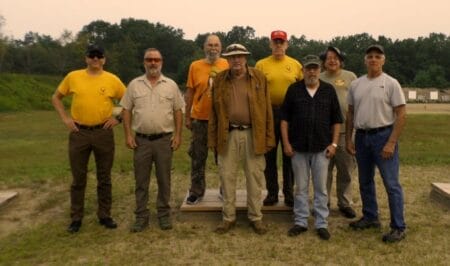
On January 1, 2025, New Hampshire employers must respect employees’ Second Amendment rights in locked vehicles in parking lots.
On May 22, 2024, the New Hampshire legislature passed House Bill 1336. The bill was signed into law on July 7, 2024, by Governor Sununu, and it will go into effect on January 1, 2025. The bill passed with reasonable margins. 201 – 172 in the House and 14 – 10 in the Senate. From the text of the bill:
159:27 Stored Firearms in Vehicles.
I. Any public or private employer that receives public funds from the federal or state government or any subdivision thereof, whether such funds are in the form of payment for contractual services, grants, or in any other form however denominated, and irrespective of the amount or level of such funding, or any agent of such an employer, shall not:
(a) Prohibit an employee who may legally possess a firearm from storing a firearm or ammunition in the employee’s vehicle while entering or exiting the employer’s property or while the vehicle is parked on the employer’s property as long as the vehicle is locked, and the firearm or ammunition is not visible.
(b) Take any adverse action against any employee who stores a firearm or ammunition in accordance with this section.
The bill prohibits employers from requiring an employee to answer questions about whether the employee has weapons in their vehicle. Employers are also immune from lawsuit for any damages that result from an employee’s actions involving a firearm or ammunition stored in their vehicle.
A number of states have enacted such laws to ensure employees can exercise their right to be armed en route to and from work. As Second Amendment supporters work to restore Second Amendment rights, impediments to exercising those rights are being challenged across the United States.
The strategy to make the carry and use of firearms difficult and legally dangerous is clear. The theory is simple: if people who wish to be armed for the defense of themselves and others are placed in legal jeopardy in enough places, they will cease to carry arms with them. People will become used to being unarmed and will become less dangerous to each other and, especially to government agents.
The theory does not hold up in practice. When firearms are hard to acquire and/or access, homicide and suicide are not reduced. Homicide and suicide committed with firearms may be reduced, but overall homicide and suicide remain the same, within measurable limits. This is partly because of the substitution of methods and partly because firearms are useful for both defense and offense. When firearms are not available, mere physical size, strength, skill, and agility become far more important.
The counter to the case made to disarm the public was made by Cesare Beccaria in Crimes and Punishments, first published in 1764. The book had a significant impact on the founders of the American state.
False is the idea of utility that sacrifices a thousand real advantages for one imaginary or trifling inconvenience; that would take fire from men because it burns, and water because one may drown in it; that has no remedy for evils except destruction. The laws that forbid the carrying of arms are laws of such a nature. They disarm only those who are neither inclined nor determined to commit crimes.
Disarming the public is a strategy long employed by tyrants and autocracies as a means to enhance their safety and their control over the public. One of the benefits of an armed public is an increase in individual responsibility and civic virtue. Legally armed citizens, which in the United States excludes non-criminals, children, and those mentally incompetent, have an exemplary record of following the law.
About Dean Weingarten:
Dean Weingarten has been a peace officer, a military officer, was on the University of Wisconsin Pistol Team for four years, and was first certified to teach firearms safety in 1973. He taught the Arizona concealed carry course for fifteen years until the goal of Constitutional Carry was attained. He has degrees in meteorology and mining engineering, and retired from the Department of Defense after a 30 year career in Army Research, Development, Testing, and Evaluation.







Carry of firearms where I worked for 30 years, across the river in CA. being illegal, as well as violation of company rules, I never carried “A’ gun… always carried 2, compact in a pocket and full size in briefcase.
“Better judged by 12 than carried by 6”.
Hi Get Out. While I agree that it is generally preferable to have it on you, there may be times that it is best to leave a gun in the car in a work environment. I once worked in a cotton mill weave room. There was so much heavy machinery in constant motion, grease and oil on the floors, and other hazards; I probably wouldn’t have carried even if it had been legal. We frequently had to squeeze between looms and other tight spots with moving parts. A shuttle arm hitting my little Bauer .25 might have been enough to… Read more »
Good on New Hampshire for passing this law. Idiotic corporate rules against having a firearm in your vehicle have been around at least since the early 1960’s, that I know of. My grandfather was part of the startup crew for a the DuPont plant in our area. I recall him grumbling about their rules against having a handgun in your car. Occasionally, he did carry a gun to work in his locked glove box, but mostly he adhered to the company rule. By the way, does anyone know what is up with automobile manufacturers and them no longer putting locks… Read more »
kudos for Gov Sununu and the legislature. Will this apply to Federal institutions, as well as schools, hospitals, and the usual ‘safe places’?
Being able to keep your gun on company property, even if locked in the car can be a big deal for many people and for many reasons. For many, who commute a long way between home and work, it allows you to have a gun in the car for that trip. I used to work in what was described as the worst prison in my state. I commuted 30-35 miles each way, every day I worked. The prison had strict laws/rules about having firearms on their property, even in their parking lot. Fortunately, I was able to park about a… Read more »
Whhhaaaaa???
I say bullshit to the guns being locked up does not make a difference in the amount of deaths. The thug Gangstas get most of their guns from breaking into your home and stealing them out of the closet. When there is a good solid safe involved they either use your tools to break into it but in most cases leave it behind because there is another house down the street with them in the closet for easy pickens. More time spent increases odds of getting caught, they want in and out in minutes. It’s easy to debunk the statement… Read more »
I recall going to the Ruger factory police armorers course in Newport, NH in the 1970s. One of the fellow attendees brought his pistol into the factory and asked the instructor if someone could secure it for the day. The instructor looked amused and said, yeah, he guessed so, but he could have left it in his car. He said there were shotguns in half of the unlocked cars in the lot. I walked about a bit a few days later, and he was right. What a difference.
Dean, if I read it correctly, I think you meant “criminals” rather than “non-criminals” in the last paragraph, since you describe “excludes”.
All Gun Laws Restricting Guns Are Unconstitutional! “Shall Not Be Infringed”!